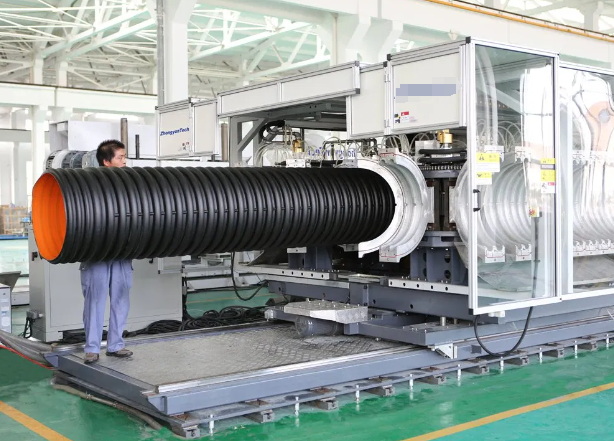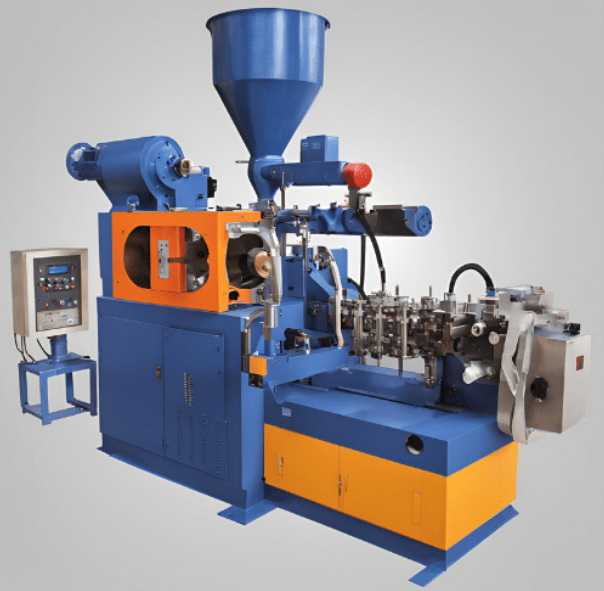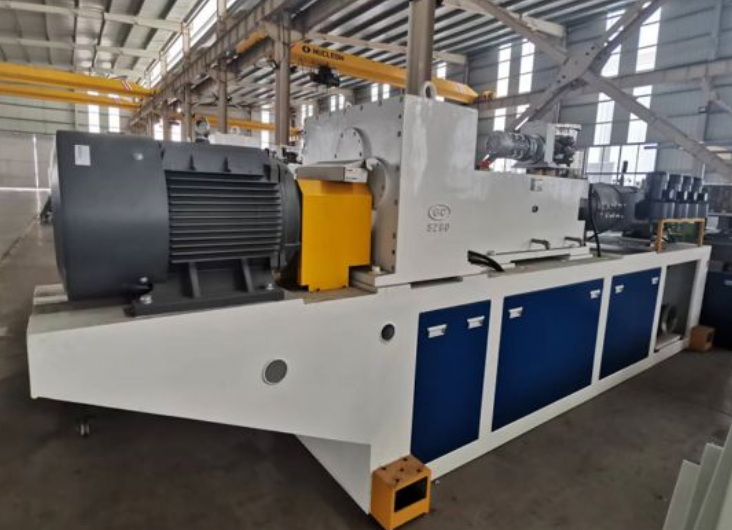Content Menu
● 1. Understanding HDPE Corrugated Pipes
>> 1.1 Properties of HDPE
● 2. The Technology Behind HDPE Corrugated Pipe Extrusion Lines
>> 2.1 Advanced Features of Modern Extrusion Lines
● 3. Advantages of Using HDPE Corrugated Pipe Extrusion Lines
>> Durability and Longevity
>> Environmental Sustainability
>> Versatility
>> Cost-Effectiveness
● 4. Applications of HDPE Corrugated Pipes
>> 4.1 Case Studies on Successful Implementations
● 5. The Future of HDPE Pipe Production
>> 5.1 Innovations on the Horizon
● Conclusion
● FAQ
>> 1. What is the lifespan of HDPE corrugated pipes?
>> 2. How do HDPE pipes compare to traditional materials?
>> 3. Can HDPE pipes be recycled?
>> 4. What applications are best suited for HDPE corrugated pipes?
>> 5. How does the extrusion process work?
High-Density Polyethylene (HDPE) corrugated pipes have gained immense popularity in various industries due to their durability, flexibility, and cost-effectiveness. The production of these pipes is facilitated by advanced HDPE corrugated pipe extrusion lines, which are essential for businesses looking to invest in reliable and efficient piping solutions. This article explores the numerous benefits of using HDPE corrugated pipe extrusion lines, the technology behind them, and why they are a smart choice for your business.

1. Understanding HDPE Corrugated Pipes
HDPE corrugated pipes are made from high-density polyethylene, which provides excellent resistance to corrosion and chemicals. The unique corrugated design enhances the strength of the pipes while maintaining a lightweight structure that simplifies transportation and installation.
- Flexibility: HDPE corrugated pipes can bend without breaking, making them ideal for uneven terrains.
- Durability: These pipes can last over 50 years under proper conditions, significantly reducing maintenance costs.
- Cost-Effectiveness: Their lightweight nature reduces transportation costs and installation time.
1.1 Properties of HDPE
HDPE possesses several properties that make it suitable for pipe manufacturing:
- Chemical Resistance: HDPE is resistant to a wide range of chemicals, making it ideal for industrial applications.
- Low Water Absorption: The material does not absorb water, which helps maintain its structural integrity over time.
- UV Resistance: When properly stabilized, HDPE can withstand prolonged exposure to sunlight without degrading.
2. The Technology Behind HDPE Corrugated Pipe Extrusion Lines
The extrusion process involves several key components working together to produce high-quality HDPE pipes:
- Extruder: Melts and shapes the HDPE material into a continuous pipe form.
- Die Head: Shapes the melted polymer into the desired pipe profile.
- Calibration Tank: Cools and calibrates the pipe to precise dimensions.
- Haul-off Unit: Pulls the pipe from the die and controls the extrusion speed.
- Cutter: Cuts the pipe to the required length.
This automated system ensures consistent quality and performance characteristics in every batch of pipes produced.
2.1 Advanced Features of Modern Extrusion Lines
Modern HDPE corrugated pipe extrusion lines come equipped with advanced features that enhance production efficiency:
- Automated Control Systems: These systems monitor temperature, pressure, and speed throughout the extrusion process, ensuring optimal conditions for producing high-quality pipes.
- Energy Efficiency: Newer models are designed to consume less energy while maintaining high output rates, contributing to lower operational costs.
- Integrated Quality Control: Many extrusion lines now include real-time monitoring systems that check for defects during production, allowing for immediate corrections.
3. Advantages of Using HDPE Corrugated Pipe Extrusion Lines
Investing in HDPE corrugated pipe extrusion lines offers numerous advantages for your business:
Durability and Longevity
HDPE pipes are resistant to impact, chemicals, and corrosion, making them suitable for harsh environments. Their longevity means less frequent replacements, leading to lower overall costs.
Environmental Sustainability
HDPE is recyclable, contributing to sustainable infrastructure development. Using these pipes reduces reliance on non-renewable resources.
Versatility
HDPE pipes are available in various sizes and configurations, making them suitable for multiple applications across different industries:
- Water Management Systems: Ideal for stormwater drainage and flood control.
- Sewage Systems: Effective in conveying wastewater due to their corrosion resistance.
- Agricultural Applications: Used extensively in irrigation systems due to their flexibility and durability.
- Telecommunication Ducts: Suitable for protecting cables from environmental damage.
Cost-Effectiveness
The production process is efficient, reducing manufacturing expenses. Additionally, the long service life of HDPE pipes minimizes maintenance costs.

4. Applications of HDPE Corrugated Pipes
HDPE corrugated pipes find applications in various fields:
- Water Management Systems: Used in drainage systems to prevent flooding during heavy rains. Their lightweight nature allows for easy installation in challenging terrains.
- Sewage Systems: Effective in conveying wastewater due to their corrosion resistance. They can withstand harsh chemicals typically found in sewage systems without degrading over time.
- Agricultural Applications: Ideal for irrigation systems due to their flexibility and durability. They can be laid out easily across fields without requiring extensive excavation work.
- Infrastructure Rehabilitation: Used in trenchless technologies for repairing existing pipelines without extensive excavation. This method minimizes disruption to surrounding areas while ensuring effective repairs.
4.1 Case Studies on Successful Implementations
Several case studies demonstrate the successful implementation of HDPE corrugated pipes in various projects:
1. Urban Drainage Improvement Project:
In a major city facing frequent flooding issues, engineers replaced outdated drainage systems with HDPE corrugated pipes. The new system significantly improved water flow during storms and reduced flooding incidents by 40%.
2. Agricultural Irrigation System:
A farming cooperative implemented an extensive irrigation system using HDPE pipes. The flexibility allowed farmers to adapt the layout according to field contours while reducing water loss due to evaporation by 30%.
3. Telecommunication Infrastructure Upgrade:
A telecommunications company used HDPE ducts to protect fiber optic cables during an infrastructure upgrade. The lightweight nature of the pipes facilitated faster installation times while ensuring long-term protection against environmental factors.
5. The Future of HDPE Pipe Production
As industries increasingly prioritize eco-friendly practices, the demand for HDPE pipes will continue to grow. Advances in extrusion technology will enhance production efficiency and reduce environmental impacts further.
5.1 Innovations on the Horizon
The future of HDPE pipe production may include:
- Smart Pipes: Integration of sensors within the pipes that monitor flow rates and detect leaks in real-time.
- Biodegradable Additives: Research is ongoing into additives that could make traditional plastics more environmentally friendly while maintaining performance standards.
Conclusion
Choosing HDPE corrugated pipe extrusion lines can significantly benefit your business by providing durable, flexible, and cost-effective piping solutions. The advantages of these pipes make them an ideal choice for various applications across multiple industries. Investing in advanced extrusion technology not only enhances production efficiency but also aligns with sustainable practices that are becoming increasingly important in today's market.

FAQ
1. What is the lifespan of HDPE corrugated pipes?
HDPE corrugated pipes can last over 50 years under proper conditions due to their resistance to corrosion and chemicals.
2. How do HDPE pipes compare to traditional materials?
HDPE pipes are lighter, more flexible, resistant to corrosion, and have a longer lifespan compared to traditional materials like concrete or metal.
3. Can HDPE pipes be recycled?
Yes, HDPE is a recyclable material, contributing to sustainable infrastructure development by reducing waste.
4. What applications are best suited for HDPE corrugated pipes?
They are ideal for water management systems, sewage systems, agricultural irrigation, and infrastructure rehabilitation projects.
5. How does the extrusion process work?
The extrusion process involves melting raw HDPE pellets in an extruder, shaping them through a die head into pipe forms, cooling them in a calibration tank, and cutting them to specified lengths.






















